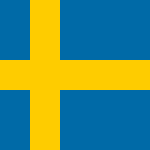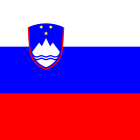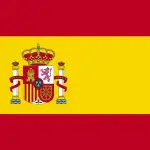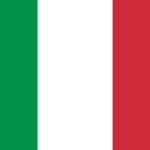5 facts about Italy
- The average Italian consumes 25kg of pasta per year. To put that into perspective, that’s even heavier than your luggage for an economy airline flight (and let’s face it, we’re always a couple of kgs over).
- Italy houses the smallest country in the world: the Vatican City. In the heart of Rome, it is the smallest state in the world by area.
- If you open a world map and the first country your eyes will set on is Italy. Why? Because the Italian peninsula is shaped exactly like a boot.
- In Italy, cappuccino is only for breakfast. Ordering a plate of spaghetti and a cappuccino at lunch is a big no-no.
- In the city of Naples, you can have a “suspended coffee”: a free coffee already paid by another person. This tradition started during World War II. People would buy a coffee for themselves and a second one for whoever could not afford it.
Discover Italy: Official Tourism Website
Sustainable facts about Italy
- National Curriculum – Italy was the first country to incorporate climate change sustainable development into its National Curriculum.
- Renewable energy – More than ⅓ of the electricity produced in Italy comes from green sources: hydroelectric, solar photovoltaic, bioenergy, wind and geothermal. Overall, Italy is the third largest producer of renewable energy in Europe.
- Recycle – In Italy, separate waste collection is done in many ways: depending on the area, waste is collected at home, on the street, taken to drop-off points and/or bags of different colors are used to identify the material.
- Saving energy – 77 % of Italians use low-consumption appliances in their homes, 79 % buy LED lightbulbs even if they’re more expensive.
- Travel sustainably- the number of people who’ve planned sustainable holidays in Italy has increased considerably over the course of the past year, from 2.5 to 3.5 million, and 8.1 million Italians are willing to spend more on trips that are more respectful of the places and people they visit.
- Reducing food waste – If in the rest of the world asking for a doggy bag at a restaurant is a very normal thing, in Italy people are shy and tend to avoid for fear of being judged as stingy or rude. For this reason, the government has recently issued a new law to limit food waste and among the regulations there is an article that invites the removal of leftovers in restaurants. Hopefully, the doggy bag will also officially become part of our habits.
More facts about Italy and sustainability:
6.70 tons
Italian average carbon footprint/ person 2022-2023
What can you do to keep your visit in Italy sustainable?
Transport
- In Italy the car sharing is very popular, and you can also choose electric car sharing to avoid fuel consumptions:
Enjoy. - In most of the Italian cities you can rent a bike (standard or electric) to cut down on carbon emissions: BikeMi
- Public transport is always a good idea, especially in big cities you can decide to move by train/bus/underground.
Energy & water consumption

Throughout Italy tap water is drinkable. Make the most of it and always carry a reusable bottle of water with you.
You are in a country that has made the Mediterranean diet its strong point. Take the opportunity to eat less meat and prefer fresh, seasonal foods: this will help to reduce greenhouse cultivation and related environmental impacts, as well as in supply and transport costs from distant countries.
Waste production
- Not only water: in Italian shops you will easily find refillable soap and lotion bottles. Use them to avoid plastic.
- Quality is a trademark of Italian goods: shop smart, buy less and better (and use a woven eco-friendly bag when you shop).
Recycling
In Italy you should separate your trash depending on where you live. However, you can typically split your trash into the following categories:
- Paper
- Organic garbage
- Plastic
- Metal
- Glass
- General trash (non-recyclable)
A few handy apps are also available to help you recycle correctly:








